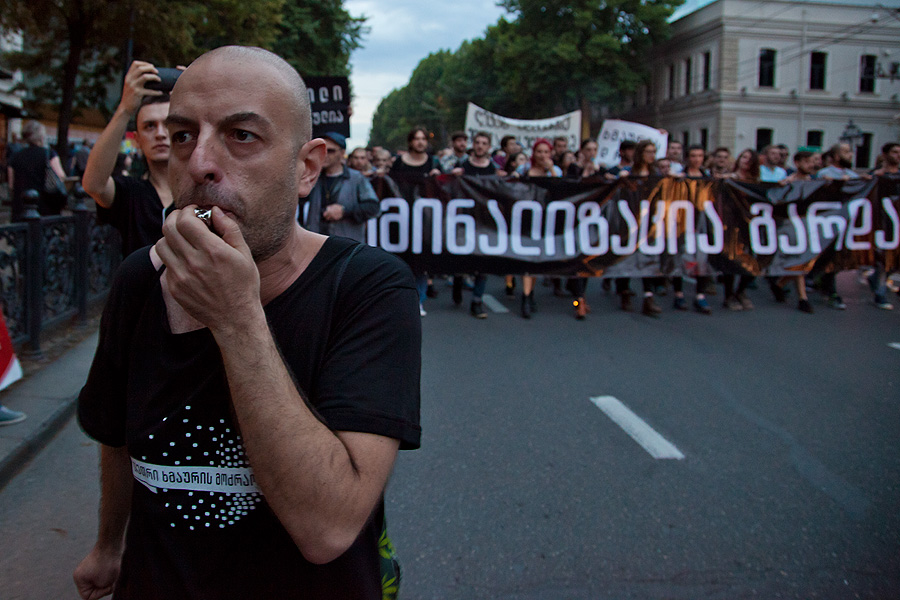The National Drug Policy Platform, which unites 41 non-governmental organizations, released a statement on March 27, calling on the Parliament to support the CSO-drafted legislative proposal, which envisages decriminalization of drug use and introduces rehabilitation programs for drug addicts.
The statement comes a day after several dozen media representatives held a rally to protest the “inadequate and inhuman” sentence – eight-year imprisonment – delivered against Mamuka Berdzenishvili, former staff member of the Georgian Public Broadcaster, on drug possession charges.
The National Drug Policy Platform said in its statement today that Berdzenishvili’s detention was “a continuation of unfair and repressive legislation.”
The Platform then stressed the drug reform bill submitted to the Parliament last June was “unreasonably delayed,” and that the arguments against the reform were “unjustified,” and based on “personal, narrow and biased opinions, stereotypes or ideological prejudices.”
“We call on the Georgian Parliament to discuss and support the draft reform bill within shortest period of time, and with that, put an end to unfair, irrational and oppressive policy,” reads the statement.
The White Noise movement, one of the members of the Drug Policy Platform, released a statement of its own, accusing Prime Minister Giorgi Kvirikashvili of failing to fulfil his “pledge” last June to adopt a drug law, which would meet “humane and European standards.”
“You and your political team are directly responsible for the fates of all those persons, who were subject to criminal prosecution for using or possessing drugs for personal use,” the White Noise movement wrote in its March 26 address to PM Kvirikashvili.
Background
Under the current legislation, first-time use of drugs is punished by an administrative fine, while repeated use of drugs results in criminal liability – corrective labor or imprisonment for a term of up to one year.
The Parliament of Georgia is currently processing the CSO-drafted legislative amendments, which, if approved, will release use of drugs for personal purposes as well as possession of small amount of drugs from criminal liability. Moreover, public agencies will be obliged to carry out measures aimed at reducing health, social and economic harms caused by drug use.
The bill was registered in the Parliament in June 2017 as a legislative proposal of five ruling party lawmakers, but due to lack of consensus within the ruling Georgian Dream-Democratic Georgia party, its discussion has been delayed. The Georgian Orthodox Church weighed in on the issue as well, calling for halting the parliamentary discussions.
In an interview to Civil.ge a month ago, the Georgian Interior Minister Giorgi Gakharia said “drug use should not lead to criminal cases, but starting this process without having a strong rehabilitation system is very risky.”
According to a new report commissioned by the Council of Europe, Georgia was among the countries with the highest proportion of people imprisoned for drug offences (39%) in 2016, along with Malta (43.5%), Andorra (33.3%), Italy (30.8%) and Iceland (30.3%).

